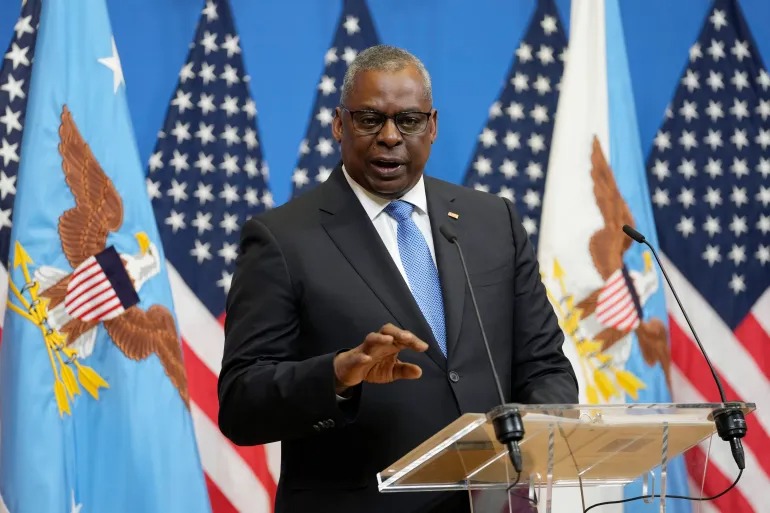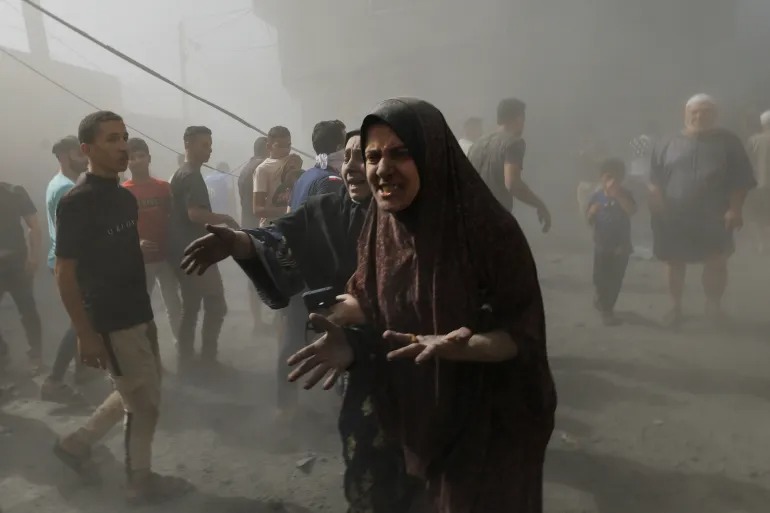In a decisive move, the United States has launched targeted strikes on facilities in Syria, marking a response to a series of attacks on US forces in Iraq and Syria. These strikes, aimed at locations tied to Iran’s Islamic Revolutionary Guard Corps and Iran-backed groups, come after the White House had issued a stern warning that retaliation would occur at a time and manner of their choosing.
Retaliatory Strikes in Response to Attacks on US Forces
The Pentagon confirmed the strikes, emphasizing their commitment to self-defense against attacks they attribute to Iranian-backed armed groups. US Defense Secretary Lloyd Austin expressed the US’s desire to avoid further hostilities but firmly declared these attacks against American forces as unacceptable. He stated, “Iran wants to hide its hand and deny its role in these attacks against our forces. We will not let them.” Austin warned of taking further necessary measures to protect US personnel if such attacks persist.
These “narrowly-tailored strikes,” according to Austin, are not related to the ongoing Israel-Hamas conflict, and they do not signify a shift in the US approach to that conflict. The Pentagon’s actions are seen as a direct response to a series of attacks on US and allied forces in Iraq and Syria, totaling 16 incidents this month. These attacks have resulted in 21 US personnel sustaining injuries, primarily traumatic brain injuries.
Tensions Escalate Amidst Israel-Hamas Conflict
The recent surge in attacks on US forces in the region coincided with the outbreak of the Israel-Hamas war, which commenced when the Palestinian group launched a significant attack on Israel, leading to a high casualty count, according to Israeli officials. The Palestinian authorities reported a significant number of casualties in Gaza due to Israeli air strikes in response to Hamas’s actions on October 7.
President Joe Biden had previously conveyed a direct warning to Iranian Supreme Leader Ayatollah Ali Khamenei, specifically cautioning against targeting US troops in the Middle East. Biden clarified that this warning was unrelated to the Israel-Hamas conflict and was intended to prevent further violence.
US-Iran Relations Strained Over Alleged Warnings
The exchange of warnings between the US and Iran has not been without controversy. Mohammad Jamshidi, an aide to Iran’s President Ebrahim Raisi, disputed President Biden’s account. He claimed that the US messages were not directed at Ayatollah Ali Khamenei and characterized them as mere requests from the Iranian side. Jamshidi challenged Biden to provide the text of these messages.
As tensions continue to simmer between the two nations, there remains a sense of unease over the potential for the Israel-Hamas conflict to escalate into a broader regional conflict. Iran’s support for both Hamas in Gaza and the Lebanese group Hezbollah, which has clashed with Israel along the Israel-Lebanon border, adds complexity to the situation.
Iran’s Foreign Minister, Hossein Amir-Abdollahian, addressed the United Nations, issuing a warning. He stated that the US “will not be spared from this fire” if Israel’s bombardment of Gaza does not cease. While expressing reluctance for further regional escalation, he emphasized that the ongoing violence in Gaza could lead to unintended consequences.
The situation in the Middle East remains fluid and volatile, with the US’s calculated strikes in Syria reflecting their commitment to protecting their personnel while navigating a complex web of regional tensions.
















